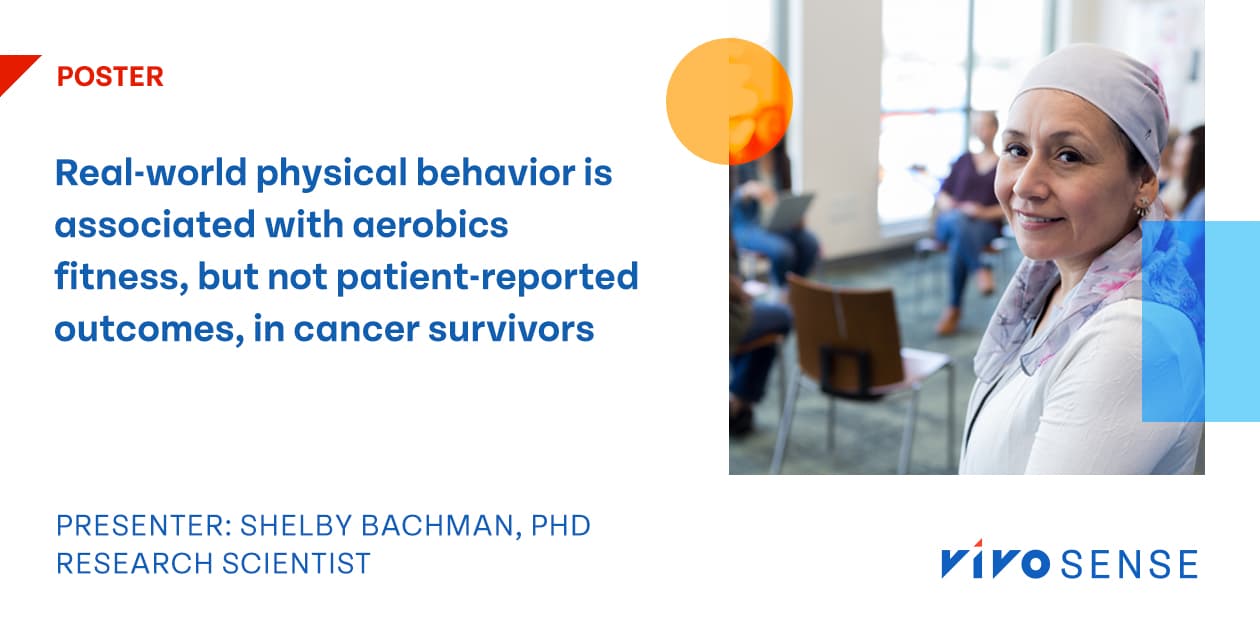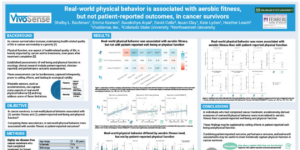VivoSense Research Scientist Shelby Bachman, PhD, presented the poster, Real-world physical behavior is associated with aerobic fitness, but not patient-reported outcomes, in cancer survivors, at the October 22, 2023, Banff 9th Annual PROMIS International Conference, a multi-disciplinary forum for learning about the use of patient-reported outcome measures in clinical care and research. Shelby’s poster presentation summarized VivoSense’s recent work examining the clinical utility of real-world digital measures in oncology. Here’s a quick snapshot of the poster content.
The importance of physical function for cancer survivors
As cancer survival rates increase, maintaining health-related quality of life in survivorship becomes a priority. Cancer and its treatments often heavily impact physical function, a key aspect of this quality, even years after treatment completion.
Traditional assessments in oncology clinical research include patient-reported, clinician-reported, and performance outcome assessments. However, these methods often burden patients, occur infrequently, face ceiling effects, and lack ecological validity.
The potential for wearable sensors to capture physical function
Wearable sensors, like accelerometers, can capture many aspects of real-world physical behavior, including gait, physical activity, sedentary behavior, and life space mobility. These measures may offer insights into physical function in cancer survivorship, but researchers still need to characterize their clinical utility.
Examining the clinical utility of real-world digital measures in cancer survivors
Researchers at Colorado State University and VivoSense examined the relationship between real-world physical behavior (captured with wearable sensors) and established measures of physical function in 86 cancer survivors. They found that real-world physical behavior related more closely to aerobic fitness than to patient-reported physical function and well-being.
These findings suggest that real-world physical behavior captured with wearable sensors may provide distinct information compared to patient-reported outcomes in cancer survivors who have completed treatment. For a holistic assessment of physical function in cancer survivorship, combining patient-reported, performance, and real-world outcome assessments may be necessary.

